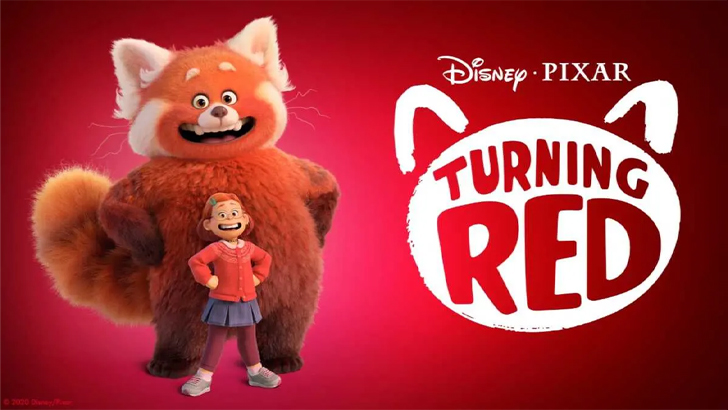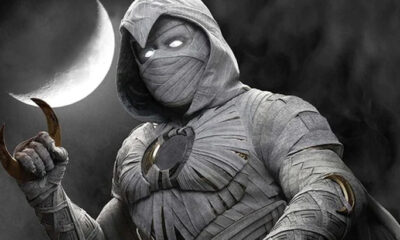REVIEWS
Turning Red Review
Published
3 years agoon

2022 | PG | 1h 40m
Turning Red is Pixar’s 25th animated feature film, marking an important landmark in their legacy in the industry. It was directed by Domee Shi in her feature directorial debut and has been well received among both critics and audiences. The film begins with its heroine, a bespectacled, dorky 13-year-old Chinese-Canadian girl going off on a monologue about what its like to live in an Asian household. Even a shred of dishonor brought to your parents can essentially spell the end for you. Life for Meilin Lee means doing whatever she can to uphold her parent’s expectations for her, even if that means that she has to sacrifice some parts of herself. Like the part that adores boybands and loud music and dancing. What, she’s 13, deal with it.
As if this was a revelation, the movie is incredibly animated. Pixar have done an amazing job capturing the souls of their characters. Among them is our heroine and her group of pals, Miriam, Abby and Priya. Their introduction scene ends up giving us a lot of exposition into what the characters are like. Miriam, perhaps the most outgoing of the group, is a potato chips-adoring, tomboyish “sk8r” (as her shirt reads) girl. Priya, the resident goth member of the group, is an Indian-Canadian girl sporting black nail-polish and eye-makeup. Also, she’s into a parody of Twilight, which is also a cool detail that adds to her persona. Abby, a Korean-Canadian girl who is a chaotic little ball of energy, is the last in the trio of besties. Her gestures throughout the length of the movie are the most entertaining and suggest just how much energy she is suppressing. Together the group make up a charming yet relatable clan of friends going about their lives on the brink of adolescence and into the unknown and terrifying valley of puberty.
Meilin Lee is at a crossroads in her life. Her mother’s hopes and dreams for her dutiful daughter collide with her plans to hang out with her friends after school, obsessing over boys and music. As if this dilemma wasn’t enough, her mother ends up discovering her diary of shame, complete with sappy drawings about a mermaid boy who looks very much like the employee of a convenience store the family frequents. Angered with shock and horror, she ends up driving to the store and you can furiously feel a second-hand embarrassment for Mei as her mother flips out the notebook in front of the boy, reprimanding him for what she thinks he’s done with her daughter. The movie makes you think of every scenario in your childhood where your parents ended up embarrassing you in a similar manner and you almost want to poof along with Mei. And poof she does, except she does this by transforming into a giant red panda.
This is the titular “Turning Red” transformation in the film, which as we and Mei end up finding out, is a hereditary curse that runs within the family brought on by intense emotions. As long as Mei keeps her emotions from running wild she can keep it under control. Placed in isolation within a room, Mei is visited by her friends who eventually find out her secret, but more importantly for Mei, keep her from transforming into her furry alter ego. As it turns out, Mei feels accepted and calm within the embrace of her girl-clan and can resist the panda spirit. If she’s to claim her life back and see her favorite boyband 4 Town in concert she must practically use this newly found power of turning in and out of the panda to the best of her ability.
The movie manages to really cleverly bring into light important topics such as female health, generational trauma, and the harrowing difficulties of puberty, while staying relatable, light and fun both for the younger and older audiences. Unlike much of Pixar’s previous films centered around male narratives, “Turning Red” is a breath of fresh air with an almost all-female cast. The film is ultimately centered around acceptance and more often than not feels like a giant warm hug, embracing everything that can feel awkward or strange or unconventional.
Rating the Movie:
Visuals: 4/5
Plot: 4/5
Characters: 5/5
Music: 3/5
Originality: 4/5
Seater Score: 4/5

























